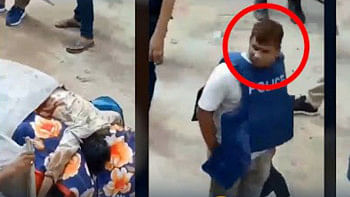Crime still on SA agenda
As South Africa's World Cup euphoria dies down, immigrants say they're worried that the nation's willingness to embrace foreigners could also run out.
"It's calm but I'm scared," said 39-year-old Patricia, a Zimbabwean mother of two living in a shantytown outside Johannesburg.
She's among the foreigners living in South Africa's poorest neighbourhoods who say that they've received threats in the wake of the World Cup, two years after a wave of anti-immigrant violence left 62 dead across the country.
"They say they give me a week and they'll come to me and do something," she said. "I'm scared but I'll fight back."
Only a handful of incidents have been reported since the July 11 final, and gleaning a trend is hard in a country where poor neighbourhoods suffer most of the country's violent crime.
But authorities are worried enough about the fears that they've repeatedly denounced the threats, unlike two years ago when an official silence was seen by some as tacit approval.
Ministers for police and defence visited Cape Town last week, after Zimbabwean migrant workers said they fled their homes because of the threats, which authorities worry are taking on a life of their own.
"Local criminals are taking advantage of the rumours. They are opportunistic. The challenges we are faced with is the competition of businesses at a local level," Police Minister Nathi Mthethwa said.
In a country where an estimated 40 per cent of the country is out of work, the jobless are concentrated in shantytowns, where competition runs fierce not only for employment but among small traders.
"Many (Mozambicans) packed and go during the weekend of the final. They say they don't want to get hurt," said 19-year-old South African student Patience Mathekga, who lives in a shack in Duduzela.
"If they leave, you won't be able to get any eggs," she added. "All the people who sell from the streets are foreigners."
The tough official line appears to have helped, said Duncan Breen, a campaigner with the Consortium for Refugees and Migrants in South Africa.
"The police response has been very good. We have seen a number of arrests," he said.
"We have also then seen... a number of community leaders and community members that actually have been standing up and saying we are not going to accept xenophobic violence in our area."
The deadly violence that erupted in May 2008 shocked the nation and badly dented South Africa's image, which has been polished with the successful staging of the World Cup, when South Africans rallied behind Ghana and other African teams in the tournament.
Government is eager to keep up the good image, and President Jacob Zuma has repeatedly called for South Africans to "unite" around immigrants.
"The support provided to Ghana and other African soccer teams was impressive and demonstrated African unity in its true sense. This spirit must continue to prevail in our country," he said.
But like the rest of life in South Africa, opinions are divided along the chasm that separates rich from poor, in a nation with the world's biggest wealth gap.
Xenophobic sentiments are less common in Johannesburg's cosmopolitan wealthy suburbs, but often searing in the poorest shantytowns that ring the city.
In Duduza's open market, South Africans say they love their neighbours, but still cast a suspicious eye on foreigners in the shantytown.
"They steal from us, they accept jobs for small money," said one resident named Zoleka, in front of a Mozambican vendor selling chicken feet. "They can work for nothing all day for 10 or 20 rands. We are suffering too."

 For all latest news, follow The Daily Star's Google News channel.
For all latest news, follow The Daily Star's Google News channel. 




Comments